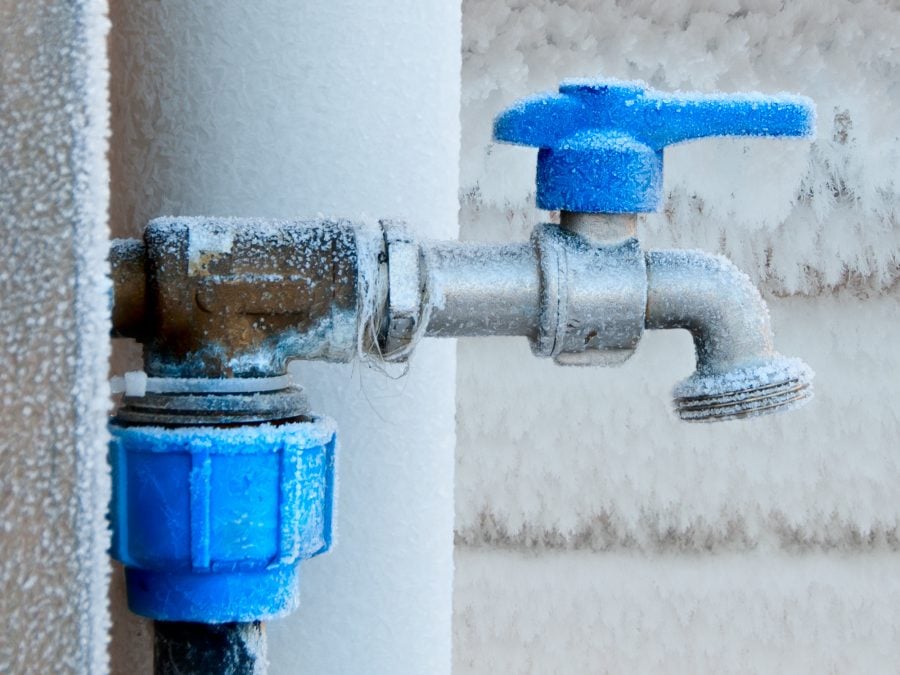We have come across this great article about Winter Plumbing Precautions: Preventing Frozen Pipes below on the net and believe it made sense to talk about it with you on this page.

Winter can damage your plumbing, specifically by freezing pipes. Below's exactly how to stop it from occurring and what to do if it does.
Intro
As temperatures decline, the danger of icy pipes increases, possibly causing costly repairs and water damage. Comprehending exactly how to avoid icy pipelines is vital for home owners in cold environments.
Recognizing Frozen Pipelines
What triggers pipelines to freeze?
Pipelines freeze when subjected to temperatures listed below 32 ° F (0 ° C) for expanded periods. As water inside the pipelines freezes, it broadens, taxing the pipe walls and possibly creating them to burst.
Dangers and problems
Icy pipes can cause supply of water interruptions, residential or commercial property damage, and costly repair services. Ruptured pipelines can flooding homes and cause considerable structural damages.
Signs of Frozen Pipeline
Determining frozen pipelines early can stop them from breaking.
How to recognize frozen pipes
Try to find decreased water flow from taps, unusual smells or sounds from pipelines, and noticeable frost on subjected pipelines.
Avoidance Tips
Insulating susceptible pipelines
Wrap pipes in insulation sleeves or use warmth tape to secure them from freezing temperatures. Concentrate on pipes in unheated or external areas of the home.
Home heating techniques
Keep indoor spaces properly warmed, especially areas with pipes. Open cupboard doors to permit cozy air to circulate around pipes under sinks.
Shielding Outdoor Plumbing
Garden pipes and exterior taps
Disconnect and drain garden hose pipes before wintertime. Mount frost-proof faucets or cover exterior taps with shielded caps.
What to Do If Your Pipelines Freeze
Immediate activities to take
If you believe icy pipelines, keep faucets available to relieve pressure as the ice melts. Utilize a hairdryer or towels soaked in warm water to thaw pipes gradually.
Long-Term Solutions
Architectural adjustments
Consider rerouting pipes away from exterior wall surfaces or unheated areas. Add extra insulation to attics, basements, and crawl spaces.
Updating insulation
Purchase high-quality insulation for pipes, attics, and walls. Proper insulation aids keep regular temperature levels and minimizes the risk of frozen pipelines.
Verdict
Stopping icy pipes requires positive procedures and fast reactions. By comprehending the reasons, indicators, and preventive measures, property owners can shield their plumbing throughout winter.
Helpful Tips to Prevent Frozen Pipes this Winter
UNDERSTANDING THE BASICS: WHY PIPES FREEZE AND WHY IT’S A PROBLEM
Water freezing inside pipes is common during the winter months, but understanding why pipes freeze, and the potential problems it can cause is crucial in preventing such incidents. This section will delve into the basics of why pipes freeze and the associated problems that may arise.
THE SCIENCE BEHIND FROZEN PIPES
When water reaches freezing temperatures, it undergoes a physical transformation and solidifies into ice. This expansion of water as it freezes is the primary reason pipes can burst. As the water inside the pipe freezes, it expands, creating immense pressure on the walls. If the pressure becomes too great, the pipe can crack or rupture, leading to leaks and water damage.
FACTORS THAT CONTRIBUTE TO PIPE FREEZING
Low Temperatures: Extremely cold weather, especially below freezing, increases the risk of pipes freezing. Uninsulated or Poorly Insulated Pipes: Pipes located in unheated areas, such as basements, crawl spaces, or attics, are more prone to freezing. Insufficient insulation or lack of insulation altogether exacerbates the problem. Exterior Wall Exposure: Pipes running along exterior walls are susceptible to freezing as they encounter colder temperatures outside. Lack of Heating or Temperature Regulation: Inadequate heating or inconsistent temperature control in your home can contribute to frozen pipes. PROBLEMS CAUSED BY FROZEN PIPES
- Pipe Bursting: As mentioned earlier, the expansion of water as it freezes can cause pipes to burst, resulting in significant water damage.
- Water Damage: When pipes burst, it can lead to flooding and water damage to your property, including walls, ceilings, flooring, and personal belongings.
- Structural Damage: Prolonged exposure to water from burst pipes can compromise the structural integrity of your home, leading to costly repairs.
- Mold and Mildew Growth: Excess moisture from water damage can create a favorable environment for mold and mildew growth, posing health risks to occupants.
- Disrupted Water Supply: Frozen pipes can also result in a complete or partial loss of water supply until the issue is resolved.
WHY CERTAIN PIPES ARE MORE PRONE TO FREEZING
- Location: Pipes located in unheated or poorly insulated areas, such as basements, crawl spaces, attics, or exterior walls, are at higher risk of freezing.
- Exterior Pipes: Outdoor pipes, such as those used for irrigation or exposed plumbing, are particularly vulnerable to freezing as they are directly exposed to the elements.
- Supply Lines: Pipes that carry water from the main water supply into your home, including the main water line, are critical to protect as freezing in these lines can affect your entire plumbing system.
- Underground Pipes: Pipes buried underground, such as those connected to sprinkler systems or outdoor faucets, can be susceptible to freezing if not properly insulated.
https://busybusy.com/blog/helpful-tips-to-prevent-frozen-pipes-this-winter/

We were introduced to that article on Helpful Tips to Prevent Frozen Pipes this Winter from a pal on our other web property. Make sure you set aside a second to distribute this write-up if you appreciated it. We enjoy your readership.
Need Help? Hire Us Now!